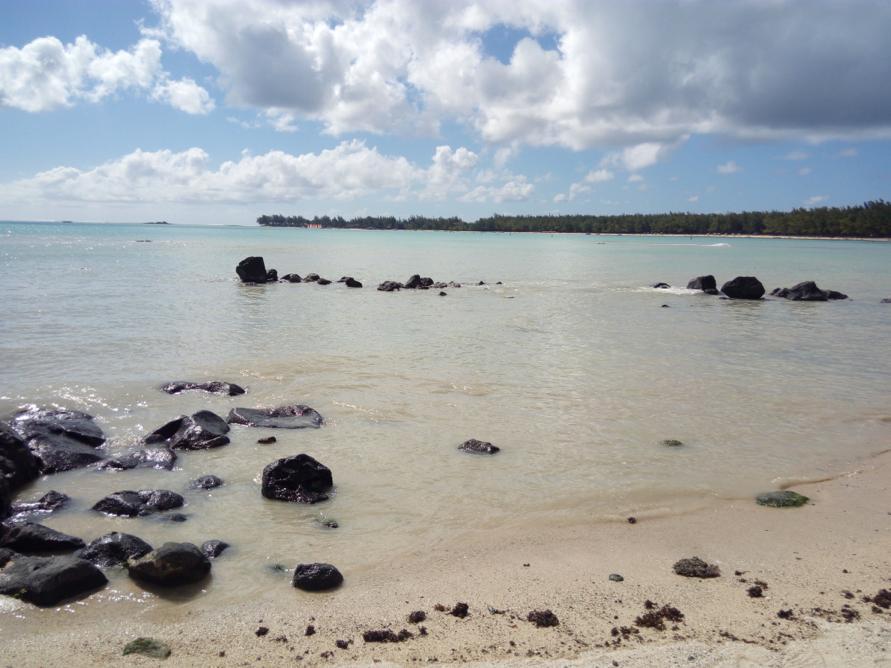
Port Louis, Mauritius.
Located just east of Madagascar, it’s a small island home to the most unlikely of people‒Indians and Chinese, with the majority of the population being Indian and Creoles, or those of mixed race.1 Tourists visit this little-known island to escape in its enchanting beaches and quaint resorts.
It’s also the place my dad called home for the first half of his life. Growing up, I spoke Cantonese to my mom and English to my dad, never quite being able to connect with the culture my dad grew up with or being able to speak his native tongue‒Mauritian Creole.
Because of Mauritius’ small population, it’s nearly impossible to find others who also grew up in Mauritius and immigrated to the States. It’s no small wonder that my dad felt isolated, lonely, and lost within the large, diverse population of the United States when he first arrived. He was Chinese, but could not speak the language and therefore was unable to fit in with those from mainland China or Hong Kong. He spoke English fluently, but his quasi-British accent made him stand out from those who spoke American English.
Thus, he struggled to find a community that would help him find his way through the American capitalist system. My very existence and this article itself is a testament to his hard work and success.
My dad’s story is similar to many first generation Asian immigrants to the United States. A struggle to make ends meet and feeling isolated in a country that speaks a ridiculously hard language, all to ultimately establish financial security and perhaps a family as well.
It wasn’t until I visited Mauritius for the first time, in the summer of 2016, that I came to understand the culture that my dad grew up in, and sadly realized that I could barely communicate with my grandmother because of her limited English.
I was shocked to find that I was a minority everywhere I went because of my fair skin‒a sharp contrast to the dark skin of the majority-Indian population. It was just so different to be in an environment where the racial majority was not Caucasian. Most of the street food I ate was Indian and even the Chinese food I ate contained Indian ingredients or had an Indian flair to it, like the Indian long grain rice used in fried rice and the traditional Indian curries and rotis sold at the side of the street. The biggest culture shock that I experienced was in a place where I am extremely comfortable at home: a Chinese dim sum restaurant. Here in the States, I was used to being served at a Chinese restaurant with Chinese waiters, but to my surprise, I was served by Indian waiters. The idea that the comfort food I enjoyed at home could be extended to such an unexpected group of people had never occurred to me, but was a pleasant surprise.
What impressed me most during my trip was the stunning harmony in which these two very different cultures coexisted; I sensed no hostility whatsoever during my stay. With a population adhering to a diverse range of religions (mainly Hinduism, Islam, and Christianity), Mauritius is a rare exception to the thousands of years of religious conflict between Muslims, Christians, and other faiths. With the exception of a short-lived riot between the Muslims and Christians before Mauritius declared independence, Mauritius has been a peaceful country that has been a mostly unknown, but excellent example of amicable relations between two vastly differing cultures.
Today, most people have no idea where Mauritius is, and I find myself constantly explaining its location. Africa is an unlikely place for a Chinese man to be, but so are many other places in the world. Although Asian diasporas are now a common phenomenon, especially here in Los Angeles, each diaspora has its own unique characteristics and struggles. The Chinese community in Mauritius is slowly dwindling, with numbers decreasing each year. In 1968, the Chinese population stood at 25,000, but it is now at 18,000 and continues to decline as the younger generations travel abroad for better educational and employment opportunities, thus leading to a brain drain and the formation of a new Chinese Mauritian diaspora.
—
I lay in bed in my grandmother’s home, waking early in the morning because of jet lag, but find myself pleasantly surprised to hear the beautiful, chilling sound of the Adhan, or the Muslim call to prayer, followed by the ringing of church bells shortly after. My dad wakes up and goes across the street to buy a freshly made baguette for breakfast. I spread margarine over it and reach for the bunch of mini bananas that were grown in the backyard. After breakfast, I go upstairs to the roof and look at the empty streets below me. Perhaps this side of me is not all lost, but simply hidden.

Comments are closed.